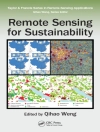This book comprehensively discusses the role that non-state actors play in the Arctic and assesses the normative role of these actors. Beyond any organised forum, there are actors that have a significant impact on the way the Arctic is developed, adjudicated, managed, perceived, presented and represented. This book complements the literature on non-state actors in international law and international security, world politics and international relations and provides a geographical account of their role for the Arctic. The book content is not limited to a specific discipline, but takes into account different approaches to the topic. This means that it contains three types of contributions: research articles, shorter research notes and commentaries. While the research articles constitute the main body of the work, it is also the research notes which provide an insight into issues related to the topic of the book.
Spis treści
Preface.- Map of the Arctic.- Acknowledgements.- List of Acronyms.- About the Authors.- Chapter 1. Arctic Governance, Decision-making and Non-state Actors.- Part 1. Perspectives from the Cirum-Arctic.- Chapter 2. The International Arctic Science Committee (IASC) in the Changing Arctic. Between International Scientific Cooperation and Science Diplomacy.- Chapter 3. Examining the Role of Think Tanks in Promoting Peace in the Arctic.- Chapter 4. The University of the Arctic (UArctic) as a Non-State Actor in the Circumpolar World.- Chapter 5. Highlighting Businesses as Key Non-State Actors in the Arctic: Collaboration between Arctic Economic Council and Polar Research and Policy Initiative.- Part 2. Perspectives from the European Arctic.- Chapter 6. Transnational cities alliances and their role in policy making in sustainable urban development in the European Arctic.- Chapter 7. Strength in Numbers? The Nordic Ministerial and Parliamentary Groupings as Observers in the Arctic Council.- Chapter 8. The development of data centres in the Nordic Arctic.- Chapter 9. Sustainable Arctic Marine Tourism Development: Scale and Scope for Community Investment, Coordination, and Action.- Part 3. Case Studies.- Chapter 10. Monitoring of Indigenous Law Enforcement in Evenkia, Russia.- Chapter 11. The Role and Impact of NGOs in Marine Mammal Governance.- Chapter 12. The characteristics of natural resource governance: The Nussir case, Norway.- Chapter 13. Bellona and the Environmental Policy in the Barents Region: A Pivotal Facilitator.- Chapter 14. Promoting the Sustainable Development Goals in the Arctic: The Case of Polar Research and Policy Initiative.
O autorze
Nikolas Sellheim holds a doctorate in law from the University of Lapland, Rovaniemi, Finland. Having intensively published on Arctic governance and marine mammal issues, he specialises on the interplay between international conservation law and local communities. He has done fieldwork at the Barents Secretariat in Kirkenes, in the Canadian commercial seal hunt in Newfoundland and in the ‘Cove’ of Taiji, Japan. Nikolas conducted his two post-docs at the Polar Cooperation Research Centre at Kobe University, Japan, and at the Helsinki Institute of Sustainability Science in Finland. He is Co-Editor-in-Chief of Polar Record, the journal of the Scott Polar Research Institute, University of Cambridge. Nikolas runs his own consultancy Sellheim Environmental (www.sellheimenvironmental.org).
Dwayne Ryan Menezes is the Founder and Managing Director of two London-based think-tanks, Polar Research and Policy Initiative (PRPI) and Human Security Centre (HSC). He is also the Director of the All-Party Parliamentary Group for Greenland in the UK Parliament, Vice-President at Arctic Today, Advisory Board Member at JONAA, an Associate Fellow at the Institute of Commonwealth Studies, University of London, and an Honorary Fellow at the UCL Institute of Risk and Disaster Reduction at University College London. He read history at the LSE and the University of Cambridge, graduating from the latter with a Ph D, and has been affiliated since with research centres at Cambridge, Oxford and London. Formerly, he served as Consultant to the Secretary-General of the Commonwealth, Principal Consultant to the European Parliament Intergroup on Freedom of Religion or Belief, Research Associate to a UN Special Rapporteur, Director of the All-Party Parliamentary Group for Yemen in the UK Parliament, Governor of a Church of England school, and Founder and Director of the film company, Think-Film Impact Production. He is a Fellow of the Royal Historical Society, Royal Geographical Society and Royal Society of Arts.












